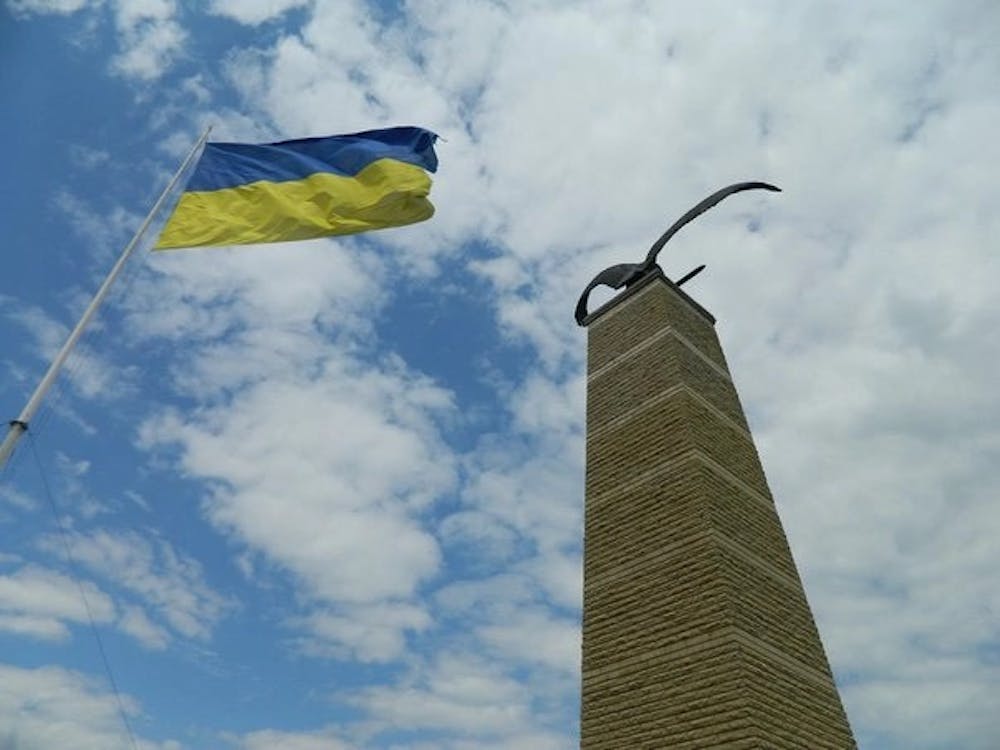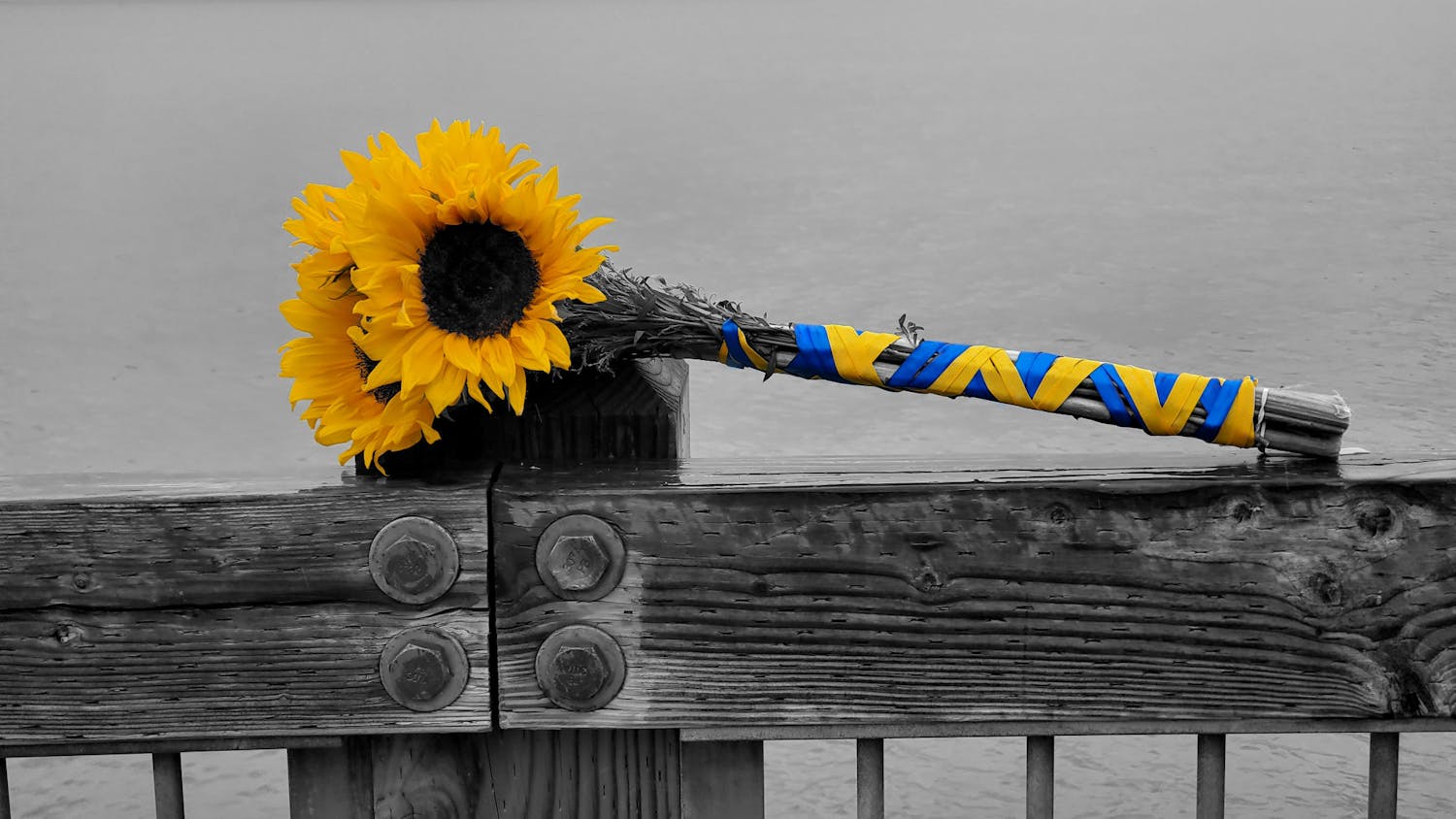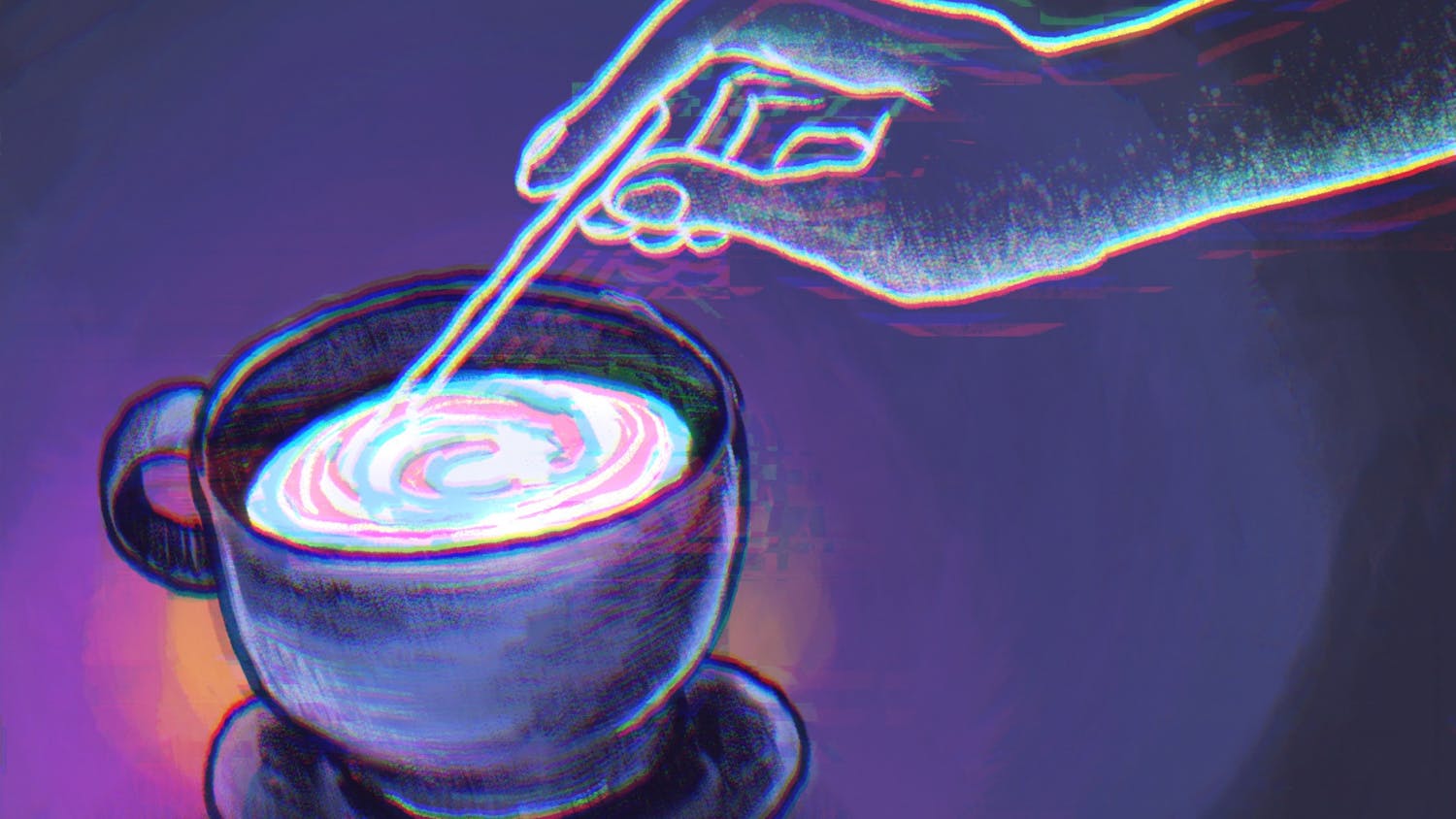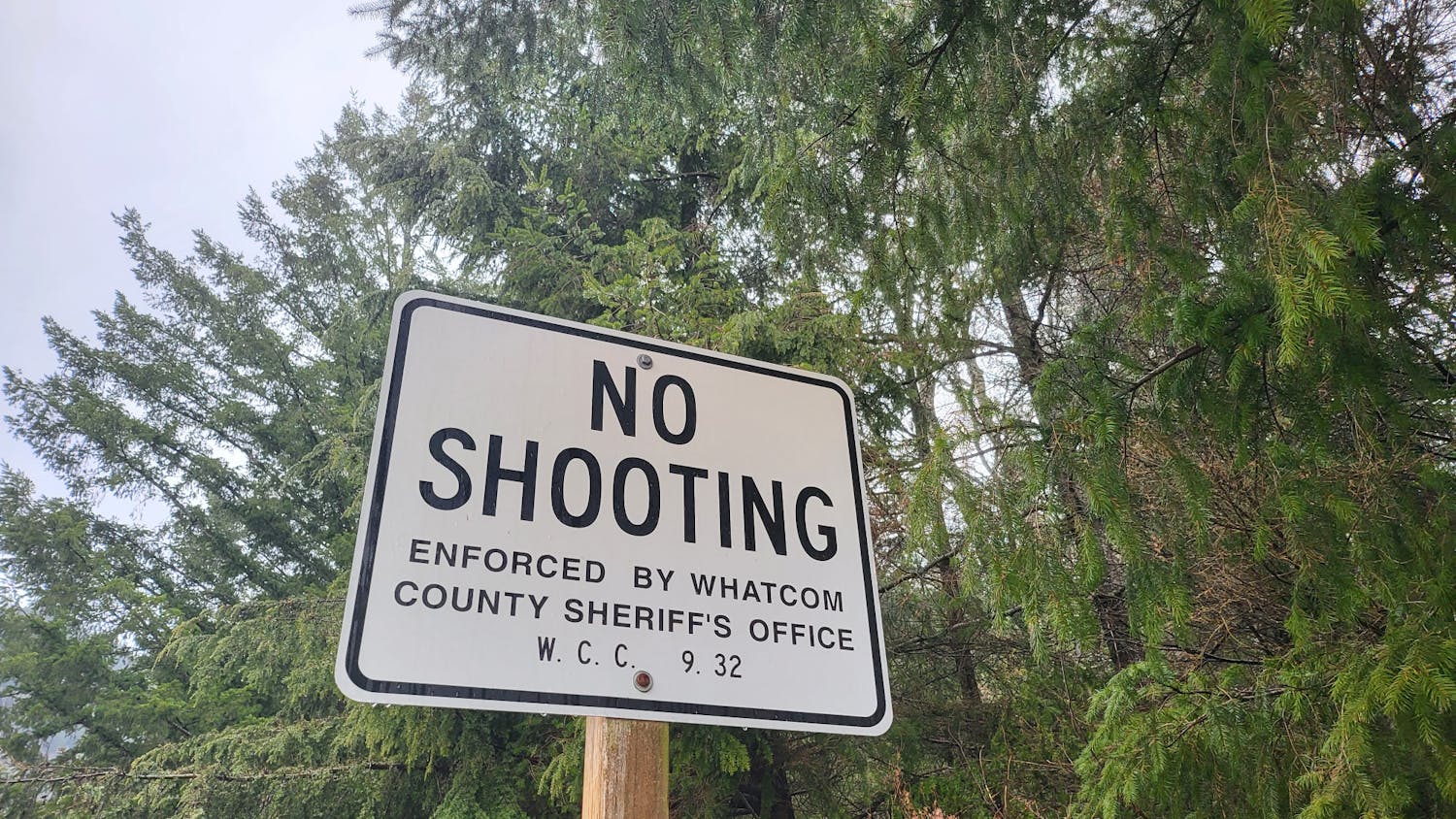Alina Niamtsu said her family can’t leave Russian-occupied southern Ukraine because people who have tried to escape have been shot.
“It’s not safe to stay, but there's no way to leave,” she said.
Niamtsu is one of many Ukrainian foreign-exchange students struggling to cope as Russian forces attack her country.
In January, Niamtsu arrived in the U.S. with 15 other Ukrainian students to experience a different culture. The program, sponsored by the U.S. Department of State, sent each student to a different state.

Alesya Chernetskaya and Margo Topchaniuk hug in Kyiv, Ukraine in 2016. In response to the Russian invasion, Topchaniuk helps send donations to Ukrainians in need. // Photo courtesy of Diana Levunets
Niamtsu said she intended to study at Western Washington University for only two quarters, but circumstances have changed.
“I lived in downtown Kharkiv, in the east, the second largest city in Ukraine,” she said. “It is destroyed now.”
Niamtsu said she is constantly checking the news. She neglects sleep because of the nine hour time difference. If her family is asleep, she wants to be able to wake them up; if they go out, she stays up until they come home.
She said her mother has to wait in line for several hours to get into a grocery store to buy food, and the options are limited. Her sister’s birthday was on March 9, and her family had to celebrate with a single cookie.
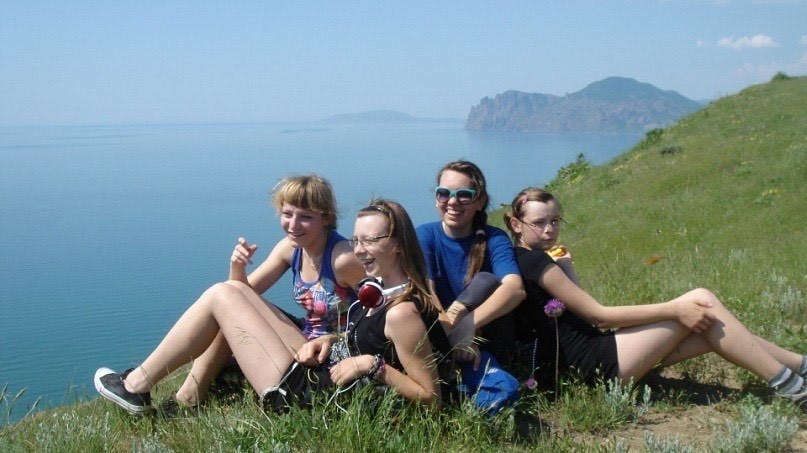
Friends Maria Lenkova, Diana Levunets, Margarita Levunets and Margo Topchaniuk hang out on the coast of Crimea in 2012. Topchaniuk escaped from Russian-occupied Crimea in 2014. // Photo courtesy of Albina Levunets
Niamtsu has held onto connections with other Ukrainians in the U.S. She said her best friend, whose family lives in eastern Ukraine, is in Massachusetts. She has another friend in Michigan who hasn’t been able to contact her family for two weeks.
“It’s a strange feeling, like you lost your life, but you can't do anything about it,” she said. “Life here doesn't stop. You open your phone and see in the news that your country's destroyed, but you're safe here.”
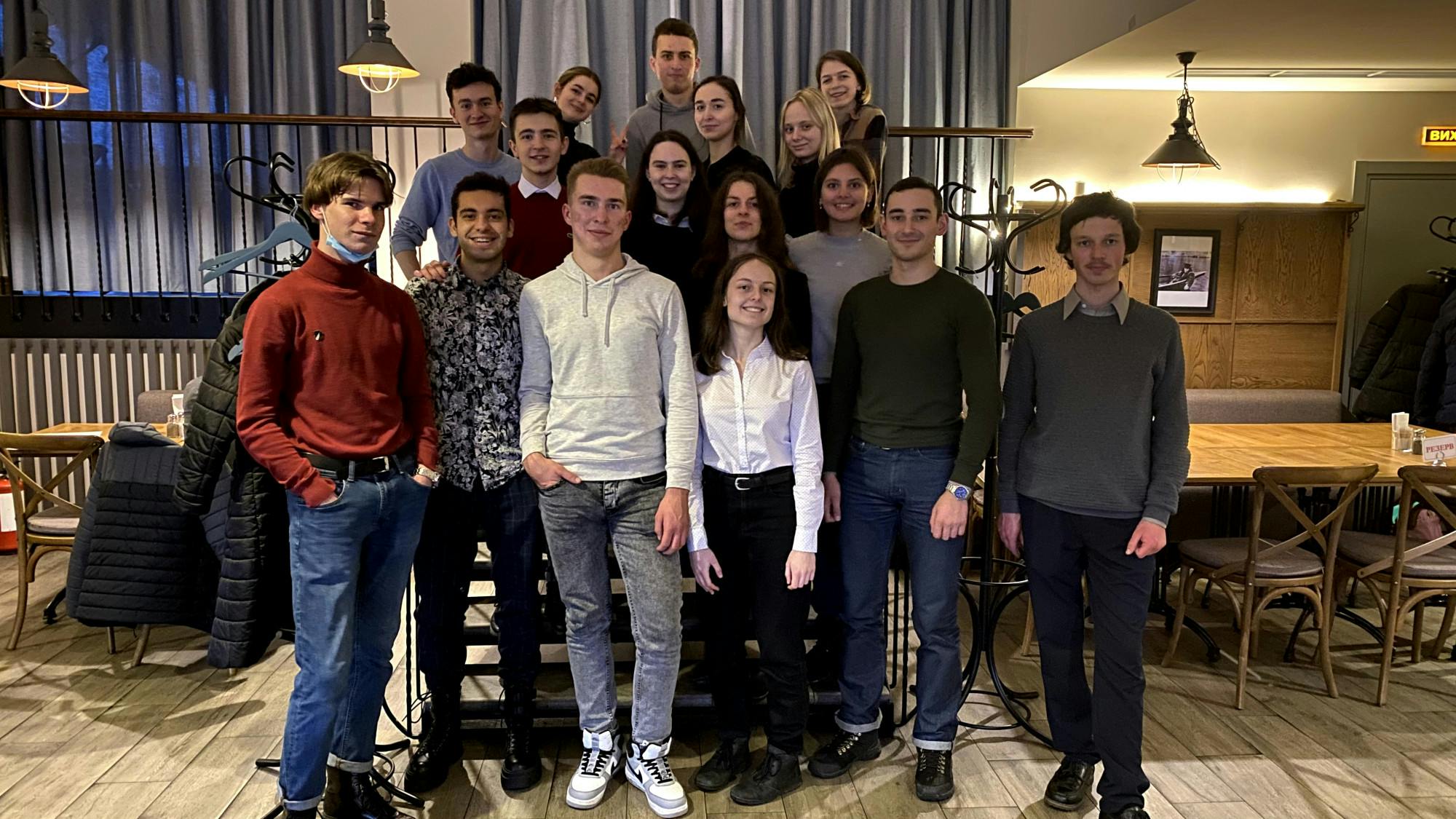
On March 11, Ukrainian Catholic University in Lviv held a Zoom meeting for solidarity among Ukrainian students across Ukraine, Europe and the U.S.
Andriana Hamar, a student at UCU, helped put together the meeting. She said it’s important to be united, to stand for democracy and the future of Europe.
“[The war has] united Ukrainians who speak different languages and who have different ambitions with one idea — to defeat a cruel, cynical enemy who encroached on our freedom,” she said in an email during the time between air raid sirens in Lviv on March 14.
Hamar said for three straight nights, her family woke to sirens. On March 14, they spent over five hours in their basement.
Yet there is guilt in Lviv, Hamar said, because they still have food, warmth and shelter.
“I can't fully realize what is happening,” she said. “Сivilians are dying. Some of them are brutally shot during evacuations and in basements, some of them are dying of hunger, many children are left without parents. Our soldiers have been fighting for our freedom for 19 days in the cold.”
Since millions of people are fleeing Ukraine to take refuge in other countries, many organizations are providing aid.
Magdalena’s Crêperie in Bellingham’s Fairhaven district is trying to help.
“My restaurant is a place where European people can return home, saying ‘Oh my God, the pierogi taste like my grandma’s,’” said owner Magdalena Theisen, who immigrated from Poland in 2009.
In February, Theisen’s Ukrainian employee Margo Topchaniuk started crying at work because she didn’t know what would happen to her brother, his wife and 4-year old child.
Theisen called her friend in Lublin, Poland, where a large network of public transportation arrives from Ukraine. Her friend agreed to house Topchaniuk’s brother and his family, and they arrived in less than 24 hours.
“After that, I felt like I could really do something,” Theisen said.
Theisen shared information on Facebook, Instagram and WhatsApp. She read an article by The Polish Red Cross that said Ukrainian refugees in Poland are receiving financial help, but they also need donations for essentials like clothes and medical care.

Theisen now takes monetary and essential item donations at the Crêperie, and she says she has seen a huge response.
Yet Magdalena’s Crêperie is not a humanitarian organization — Theisen and Topchaniuk have to work to keep the restaurant going.
“We need to find an organization that will provide us free shipping,” Theisen said. “I'm able to collect, but I'm not able to ship. The stuff is very heavy, and we cannot afford it.”
Topachaniuk said busy days at the Crêperie are a welcomed distraction from fear and distress.
She lived in Crimea during the Russian occupation in 2014, and it took her two months to escape. In that time, she said she saw the danger of Russian propaganda.
“Russia blocked all the websites and sources I was using to get news during the Ukrainian Revolution,” she said.
Topchaniuk said Russian news outlets aggressively circulated false stories. One story said Ukrainians “crucified” a child.
“People are much more willing to believe something they're getting from TV than your own experience,” she said. “That is propaganda.”
Whatcom and Skagit Counties have several communities of Russians and Ukrainians who fled Soviet Union-era religious oppression in the 1990s.
Topchaniuk said many people in these communities watch news programs run by the Russian government, and their response to the war is disheartening.
“People don't understand what's going on,” she said. “Some people don't want to understand. We are really upset by the Slavic community's response.”
Topchaniuk said relationships are strained among friends and family. When her grandmother, who lives in Ukraine, expressed fear to family members who live in Russia, they told her nothing bad will happen — Russia is coming to save her.
History professor at Fordham University and board member of the American Association for Slavic, East European and Eurasian studies in the United States, Asif Siddiqi, said Russia has transitioned from an authoritarian to a totalitarian regime. Suppression of free speech and press over time has resulted in strong support for Putin in public discourse and educational spaces.
Siddiqi said the Russian Union of Rectors, an association of Russian university presidents from about 700 universities, recently signed documents declaring support for Putin and the importance of instilling nationalist interests in young people.
“There's a large and growing minority of people who oppose [Putin],” he said. “But we should disabuse ourselves of the notion that the majority of people are opposed to him.”
Hamar said Americans can fight for democracy starting at home — by protesting and calling their elected government officials.
Niamtsu said people can help by sharing information and giving donations.
“If the government doesn’t think people care, they won’t try as hard to help,” she said. “I’m afraid if people stop talking about it, they will move on and forget us.”
Sydney Jackson (she/her) (sydneyjackson.thefront@gmail.com) is a news reporter for The Front and WWU journalism major with a political science focus. Her research and reporting interests include politics, health sciences, social issues and the arts. She enjoys fashion, music, film, reading and creative writing.


